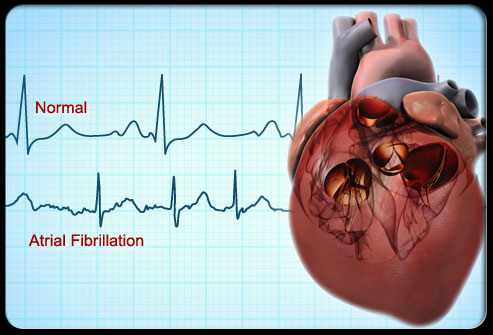OBJECTIVE
目的
While the Endocrine Society and Institute of Medicine provide guidelines on vitamin D for bone health and numerous studies have examined the potential association between vitamin D and outcomes of infertility treatment, there remains no consensus on whether testing for vitamin D deficiency and supplementation are beneficial for fertility. This study aimed to assess the current state of practice patterns surrounding vitamin D testing and supplementation given the lack of clear evidence-based guidelines for infertility patients.
尽管内分泌学会和医学研究为维生素D促进骨骼健康提供指导意见,且许多研究检测了维生素D和不孕症治疗结局之间的潜在联系,但维生素D缺乏和补充检测是否有利于生育尚未形成共识。鉴于缺乏明确的循证指南,本研究旨在评估目前维生素D检测和补充的相关实践模式状态。
MATERIALS AND METHODS
材料和方法
An anonymous questionnaire was distributed to U.S. in vitro fertilization (IVF) center directors and other providers in their practices to collect demographics, practice information, and approaches to vitamin D testing and supplementation for infertility patients. Descriptive statistics were obtained.
针对美国体外受精(IVF)中心主任和其他医疗提供者开展匿名问卷调查,收集人口统计数据、实践信息和不孕症患者维生素D的检测和补充方法。采用描述性统计分析。
RESULTS
结果
Fifty participants from 24 states responded, with 56% in academic practices. Most (64%) did not have a practice policy on vitamin D. The majority (78%) reported checking vitamin D on at least some of their patients, and 36% check vitamin D on all infertility patients. Perceived benefits of vitamin D supplementation included improved pregnancy rates (28%), response to oral ovulation induction (16%), and IVF outcomes (22%) as well as decreased miscarriage rates (22%) and obstetric complications (26%). Of the providers who check vitamin D levels, most check total 25-hydroxyvitamin D (59%), though some also reported checking other metabolites and 21% were unsure which parameters they check. There was marked variation in the level at which providers would recommend supplementation, with 56% using <30 nmol/L and others using different thresholds. Providers were asked about approaches to treatment of patients they considered vitamin D deficient or insufficient. For vitamin D deficient patients, 58% of providers always recommend oral supplementation and 37% at least sometimes recommend injectable supplementation. For vitamin D insufficient patients, 41% of providers always recommend oral supplementation and 32% at least sometimes recommend injectable supplementation. For both deficiency and insufficiency, most providers reported recommending D3 alone (56% for deficient, 62% for insufficient), but a substantial proportion also reported recommending a combination of D2 and D3 (38% for deficient, 31% for insufficient). The majority repeat vitamin D levels after supplementation (89% for deficient, 78% for insufficient) and at least sometimes recommend waiting until levels are sufficient to begin infertility treatment (66% for deficient, 61% for insufficient).
来自24个州的50名参与者做出了回应,其中56%从事学术实践。大多数调查对象(64%)表示她们没有关于维生素D的实践政策。大多数(78%)报告至少对一些患者检测了维生素D,36%对所有不孕症患者检测了维生素D。补充维生素D的潜在益处包括改善妊娠率(28%)、对诱导排卵的反应(16%)、辅助生殖结局(22%)以及降低流产率(22%)和产科并发症(26%)。在检测维生素D水平的提供者中,大多数人检测了总25-羟维生素D(59%),其中一些检测了其他代谢物,21%不确定检测了哪些参数。维生素D剂量补充推荐标准有显著差异,56%的人使用<30 nmol/L,而其他人使用不同的阈值。当研究人员被问及维生素D缺乏或不足的治疗方法时,对于维生素D缺乏的患者,58%的提供者建议口服补充,37%的提供者有时推荐注射补充。对于维生素D不足的患者,41%的提供者建议口服补充,32%的提供者有时推荐注射补充。对于缺乏和不足,大多数提供者报告推荐D3单独检测(56%缺乏,62%不足),但也有相当一部分人报告推荐D2和D3联合检测(38%缺乏,31%不足)。大多数人在补充维生素D后复查维生素D水平(89%缺乏,78%不足),有时建议等到维生素D水平达标才开始不孕治疗(66%缺乏,61%不足)。
CONCLUSIONS
结论
Despite lack of clear evidence, many providers are assessing the vitamin D levels of their infertility patients and recommending supplementation for both vitamin D deficiency and insufficiency. There was a wide range of perceived benefits as well as approaches to testing and supplementing vitamin D.
尽管缺乏明确的证据,许多医疗提供者仍在评估不孕症患者的维生素D水平,并根据情况补充维生素D。开展维生素D测试和补充有广泛的潜在益处。
IMPACT STATEMENT
影响声明
Rigorous studies on the role of vitamin D in fertility treatment outcomes are needed to develop fertility-specific guidelines for widespread implementation of testing and supplementation of vitamin D among infertility patients.
需要严格评估维生素D在不孕症患者生育治疗结局中的作用,以制定相关指南并推广维生素D的检测和补充。
文章来源:
VARIATION IN PRACTICE PATTERNS SURROUNDING VITAMIN D TESTING AND SUPPLEMENTATION AMONG INFERTILITY PATIENTS Lee, Iris TIENLYNN. et al.Fertility and Sterility, Volume 120, Issue 4, e169
作者:生殖医学论坛
版权声明:
本网站所有注明“来源:梅斯医学”或“来源:MedSci原创”的文字、图片和音视频资料,版权均属于梅斯医学所有。非经授权,任何媒体、网站或个人不得转载,授权转载时须注明“来源:梅斯医学”。其它来源的文章系转载文章,本网所有转载文章系出于传递更多信息之目的,转载内容不代表本站立场。不希望被转载的媒体或个人可与我们联系,我们将立即进行删除处理。
在此留言











维生素D作用
20
#维生素D# #不孕症#
29